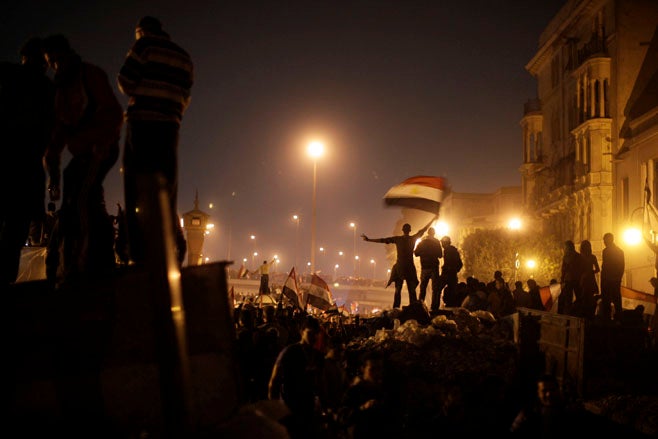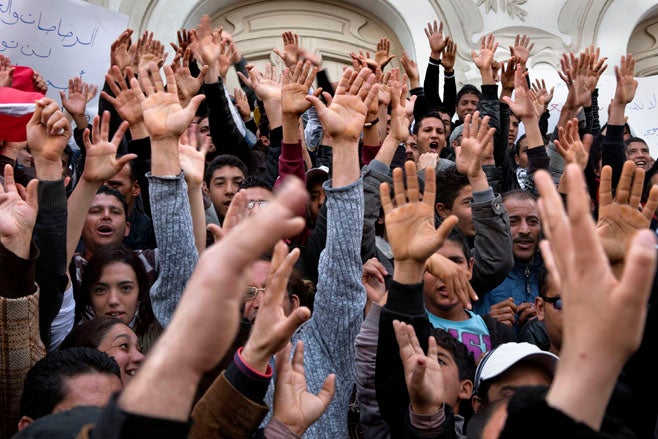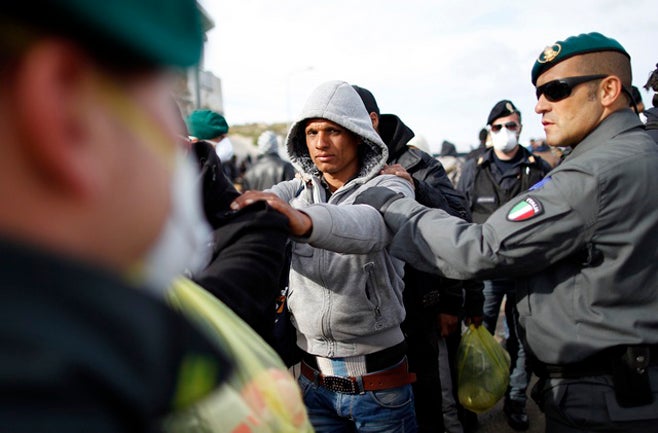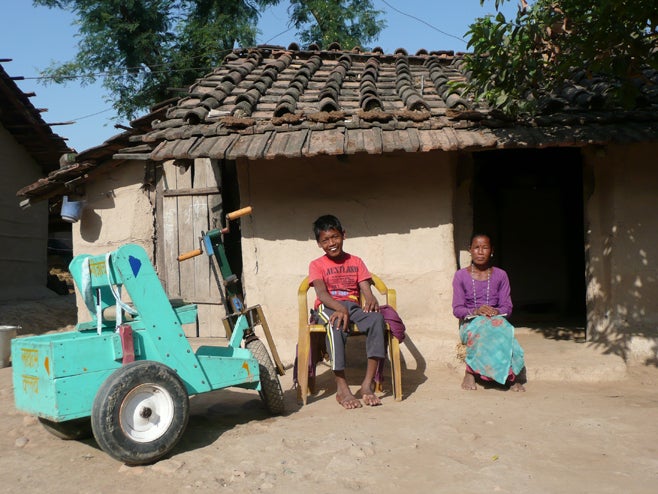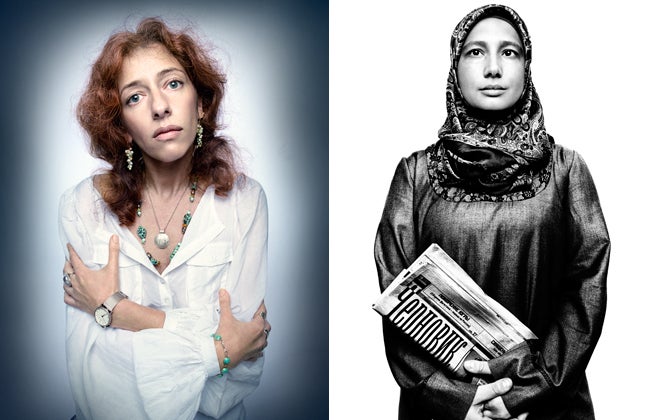The Democratic People’s Republic of Korea (North Korea) systematically violates the basic rights of its population. Although it has signed four key international human rights treaties and includes rights protections in its constitution, it allows no organized political opposition, free media, functioning civil society, or religious freedom. Arbitrary arrest, detention, lack of due process, and torture and ill-treatment of detainees remain serious and endemic problems. North Korea also practices collective punishment for various anti-state offenses, for which it enslaves hundreds of thousands of citizens in prison camps, including children. The government periodically publicly executes citizens for stealing state property, hoarding food, and other “anti-socialist” crimes.
During 2011 observers increasingly concluded that Kim Jong-Il, North Korean leader and chairman of the National Defense Commission (NDC), has selected his youngest son, Kim Jong-un, to continue the Kim family’s dynastic rule of the country. In February 2011 Jong-un was appointed vice-chairman of NDC, reinforcing his earlier appointments in September 2010 to the Central Committee of the Ruling Workers Party and the Central Military Commission.
The new International Coalition to Stop Crimes against Humanity in North Korea (ICNK), comprised of 41 international NGOs, was launched in September to advocate for the establishment of a United Nations commission of inquiry on North Korea.
Food Shortages and Famine
In March 2011 a joint UN survey estimated that over six million vulnerable persons in North Korea urgently required international food assistance to avoid famine. As estimated food shortages reached more than one million metric tons, the World Food Programme called it the worst famine in a decade, and South Korea-based NGOs and media with informants inside North Korea reported hunger-related deaths. Causes include dismal harvests resulting from floods and an extremely harsh winter; economic mismanagement of a monetary devaluation scheme in November 2009 that wiped out many peoples’ savings and heavily damaged informal food markets; and the government’s blatantly discriminatory food policies that favor the military, government officials, and other loyal groups. North Korea’s two largest food donors, the United States and South Korea, refused to provide food aid until North Korea apologizes for the sinking of the South Korean warship Cheonan and shelling of Yeonpyeong Island in 2010.
Torture and Inhumane Treatment
Testimony from escaped North Koreans indicates that individuals arrested on criminal charges often face torture by officials aiming to enforce obedience and extract bribes and information. Common forms of torture include sleep deprivation, beatings with iron rods or sticks, kicking and slapping, and enforced sitting or standing for hours. Detainees are subject to so-called pigeon torture, in which they are forced to cross their arms behind their back, are handcuffed, hung in the air tied to a pole, and beaten with a club. Guards also rape female detainees. One study done in 2010 found that 60 percent of refugee respondents who had been incarcerated witnessed a death due to beating or torture.
Executions
North Korea’s Criminal Code stipulates that the death penalty can be applied only for a small set of crimes, but these include vaguely defined offenses such as “crimes against the state” and “crimes against the people” that can be and are applied broadly. In addition, scholars and NGOs monitoring conditions in North Korea say that a December 2007 amendment to the penal code extended the death penalty to many more crimes, including non-violent offenses such as fraud and smuggling.
Forced Labor Camps
Testimony from escapees has established that persons accused of political offenses are usually sent to forced labor camps, known as gwalliso, operated by the National Security Agency.
The government practices collective punishment, sending to forced labor camps not only the offender but also his or her parents, spouse, children, and even grandchildren. These camps are notorious for abysmal living conditions and abuse, including severe food shortages, little or no medical care, lack of proper housing and clothes, mistreatment and torture by guards, and executions. Forced labor at the gwalliso often involves difficult physical labor such as mining, logging, and agricultural work, all done with rudimentary tools in dangerous and harsh conditions. Death rates in these camps are reportedly extremely high.
North Korea has never acknowledged that these camps exist, but US and South Korean officials estimate some 200,000 people may be imprisoned in them, including in camp No. 14 in Kaechun, No. 15 in Yodok, No. 16 in Hwasung, No. 22 in Hoeryung, and No. 25 in Chungjin.
Refugees and Asylum Seekers
North Korea criminalizes leaving the country without state permission. Those who leave—most often by crossing the country’s northern border into China—face harsh punishment upon repatriation, including interrogation, torture, and punishments depend on North Korean authorities’ assessments of what the returnee did while in China. Those suspected of simple commerce or other money-making schemes are usually sent to work in forced labor brigades. Others suspected of religious or political activities, including contact with South Koreans, are given lengthier terms in horrendous detention facilities or forced labor camps with chronic food and medicine shortages, harsh working conditions, and mistreatment by guards.
Hundreds of thousands of North Koreans have fled since the 1990s, and some have settled in China’s Yanbian Korean Autonomous Prefecture. Beijing categorically labels North Koreans in China “illegal” economic migrants and routinely repatriates them, despite its obligation to offer protection to refugees under both customary international law and the Refugee Convention of 1951 and its 1967 protocol, to which China is a state party.
Many North Korean women in China live with local men in de facto marriages. Even if they have lived there for years, they are not entitled to legal residence and face the risk of arrest and repatriation. Some North Korean women and girls are trafficked into marriage or prostitution in China. Many children of such unrecognized marriages are forced to live without a legal identity or access to elementary education because their parents fear that if they register the children the mother will be identified by Chinese authorities and forcibly repatriated to North Korea.
Government-Controlled Judiciary
North Korea’s judiciary is neither transparent nor independent. All personnel involved in the judiciary—including judges, prosecutors, lawyers, court clerks, and jury members—are appointed and tightly controlled by the ruling Workers’ Party of Korea. In cases designated as political crimes, suspects are not even sent through a nominal judicial process; after interrogation they are either executed or sent to a forced labor camp, often with their entire families.
Labor Rights
North Korea is one of the few nations in the world that is not a member of the International Labour Organization (ILO). The ruling Korean Workers’ Party firmly controls the only authorized trade union organization, the General Federation of Trade Unions of Korea. South Korean companies employ some 44,000 North Korean workers in the Kaesong Industrial Complex (KIC), where the law governing working conditions falls far short of international standards on freedom of association, the right to collective bargaining, and protection from gender discrimination and sexual harassment.
Freedom of Association, Information, and Movement
The government uses fear—generated mainly by threats of forced labor and public executions—to prevent dissent, and imposes harsh restrictions on freedom of information, association, assembly, and travel.
North Korea operates a vast network of informants to monitor and punish persons for subversive behavior. All media and publications are state-controlled, and unauthorized access to non-state radio or TV broadcasts is severely punished. The government periodically investigates the “political background” of its citizens to assess their loyalty to the ruling party, and forces Pyongyang residents who fail such assessments to leave the capital.
Key International Actors
The North Korean government continues to refuse to recognize the mandate of the UN special rapporteur on the situation of human rights in the DPRK or extend any modicum of cooperation to him. However, the government did permit a visit in May 2011 by Robert King, US special envoy for North Korean human rights issues, and during the visit released US citizen Eddie Jun after holding him for more than a year.
In March the UN General Assembly adopted a resolution against North Korea for the sixth straight year, citing member states’ serious concerns about continuing reports of “systemic, widespread, and grave violations of civil, political, economic, social, and cultural rights” and concerns about “all-pervasive and severe restrictions on the freedoms of thought, conscience, religion, opinion and expression, peaceful assembly and association.” In the same month, the UN Human Rights Council (HRC) adopted a resolution against North Korea for the fourth year in a row for abysmal, systematic human rights violations. Both resolutions condemned North Korea’s failure to state whether it accepted any of the 167 recommendations that it took under advisement from a HRC Universal Periodic Review session of its record in December 2009.
In July 2010 the European Parliament adopted a resolution calling for the European Union to sponsor a resolution to establish a UN commission of inquiry to assess past and present human rights violations in North Korea.
The six-party talks on denuclearizing the Korean peninsula—involving North and South Korea, China, Japan, Russia, and the US—remain stalled. The US and South Korea demanded that North Korea halt its uranium-enrichment program, freeze nuclear and missile tests, and allow international nuclear inspectors back into the country before talks could start, while North Korea insisted there be no pre-conditions to resumption of talks.
North Korean leader Kim Jong Il visited Chinese leaders in Beijing in May 2011 to discuss economic cooperation and security issues and met with Russian President Dmitry Medvedev in August.
North Korea’s relations with Japan remain frosty, largely due to a dispute over abductees. North Korea admitted in 2002 that its agents had abducted 13 Japanese citizens in the 1970s and 1980s for use in training North Korean spies. It returned five to Japan, but claimed the other eight had died. Japan insists the number of abductees is higher. No legal means of immigration between the two countries exists; of the nearly 100,000 migrants from Japan to North Korea between 1959 and 1984, only 200 have been able to return to Japan by escaping clandestinely.
